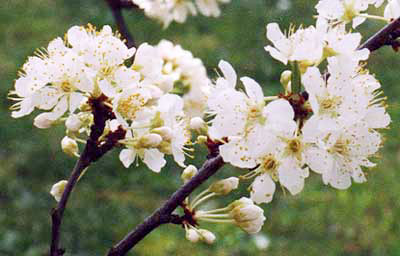subtitled: (in the style of N.H.)
Renowned author and literary icon of the 17th century Nathaniel Hawthorne--a figure of admiration for lo, these two hundred years and more--among whose works this reader numbers some of her favorites, including (but not limited to) "The Minister's Black Veil" and The Scarlet Letter--has now undertaken a dreadful task, that is, to resurrect himself (though he has long since gone to his reward, peacefully, it is to be hoped, and with much sadness on the part of those he left behind)--not through the powers of witchcraft, dear sirs, as his eminent ancestor whose pen did call for the execution of those poor souls much libeled in the unhappy town of Salem can attest to all and sundry, but through a figurative calling forth from the dead, such as occurs each time a person rifles through the pages upon which are written the glyphs which had been previously enscribed only in the author's fevered mind--and has even now commenced to draw out the life of one Mei Flower, to slowly extingush the flickering flame of sentience, the rippling stream of vitality, until she must, in the end, find life again in an untried realm (one must hope she finds it much nicer than her earthly habitation) and meet for all time, Her Heavenly Maker.
I'm reading The House of the Seven Gables, and I feel a little like the Wicked Witch after Dorothy threw a bucket of water on her. You know, like I'm dying by inches.
I've been reading it for two weeks and I'm only halfway through. I am getting to the point where I'm actually considering buying the Cliffs Notes and chucking the book itself; I'VE NEVER DONE THAT BEFORE.
In two-and-a-half pages, N.H. describes Judge Pyncheon, when I would have written it thusly (thusly!):
The Judge entered the room. He was a pompous jackass.
I'm pretty wordy myself, but COME ON. At page 118, here's what has happened:
-In Puritan times, the first Pyncheon patriarch accused Matthew Maule of witchcraft in order to get his land. He (Pyncheon) builds a house and then dies at his housewarming party.
-Things have gone downhill for the Pyncheon family.
-Hepzibah Pyncheon, currently living in the house with her senile brother Clifford and a boarder who's a painter, lowers herself to open a small store.
-Young Cousin Phoebe, from Maine, comes to visit. She's swell.
-The current patriarch, Judge Pyncheon, is at the house. I think he's fixing to do something mean and underhanded.
See? Even with stuff like descriptions and backstories, I'm thinking I could bring that in at under 50 pages. But Hawthorne, oh, he lays it on THICK. Why use six words when four hundred and seventeen will do?
And the worst part is, just when I'm ready to throw in the towel, he busts out with a sentence like this:
There was a fable, however--for such we choose to consider it, though not impossibly typical of Judge Pyncheon's marital deportment--that the lady [Pyncheon's late wife] got her death blow in the honeymoon, and never smiled again, because her husband compelled her to serve him with coffee every morning at his bedside, in token of fealty to her liege lord and master.
GOSSIP! How can I not read further after that? Freaking Hawthorne.
6.14.2006
Subscribe to:
Post Comments (Atom)

1 comment:
Good Mei, please look at the book online, "Nathaniel Hawthorne: Studies in The House of the Seven Gables" by Thomas St. John. Google it--it will do wonders for you, Mei Flower!
Post a Comment